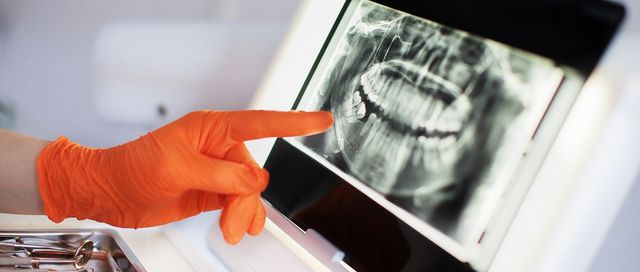Each tooth features an internal cavity at its center. This pulp contains the tooth’s nerves and blood vessels that keep the tooth healthy and connected to the rest of the body. It’s shielded by durable layers of enamel and dentin. Despite this protection, sometimes you can sustain damage to the pulp.
Advanced tooth decay or an accidental blow to the face are common damage that hurts the tooth pulp. Damaged tooth pulp might cause a blockage in the tooth’s blood vessels. Without regular blood flow, the tooth can die and cause what dentists call a non-vital tooth.
A non-vital tooth can face a greater risk of infection or other dental emergencies. When you know more about the process of testing tooth pulp vitality, you are more likely to get treatment for it. Read on to learn the steps a dentist will take to evaluate the health of your tooth pulp.

Identifying Tooth Pulp Damage
You can’t see the pulp because it’s buried inside your tooth. So how would you know if something’s wrong with it? First, you may notice some symptoms in the tooth if the pulp sustains damage.
You might notice something’s wrong when your tooth suddenly gets sensitive. This means the nerves inside aren’t getting enough blood. The tooth might also start looking darker, almost greyish, like it’s lost its shine.
Dentists can also see damage to the tooth’s pulp in a routine dental x-ray taken during a check-up appointment. They can see a problem in the tooth pulp with this imaging even when a patient doesn’t have any symptoms. So make sure you do not skip preventive dental care.
Why Early Detection Matters
Catching pulp damage early can save your tooth. When pulp inflammation (pulpitis) is reversible, simple treatments like fillings may solve the problem. But once pulp damage progresses to irreversible pulpitis or necrosis, you’ll likely need more extensive treatment. Regular check-ups allow your dentist to spot warning signs on X-rays before you even feel symptoms, potentially preventing root canal therapy or tooth loss.
Thermal Testing to Diagnose a Non-Vital Tooth
If a dentist sees a potential issue with the pulp of a tooth, they will want to confirm the diagnosis with thermal testing. During this test, the dentist takes a cold stimulus and presses it to the affected tooth. They also apply it to other areas of the mouth as controlled variables.
They check both your reaction time to the stimulus as well as the intensity of the sensation. A slower or reduced reaction to the test may mean you have a non-vital tooth.
Beyond thermal testing, dentists have other tools to check your tooth’s health. Electrical pulp testing uses gentle electrical currents to measure nerve response. A vital tooth will sense this tiny stimulation. Another method is laser Doppler flowmetry, which uses light to detect blood flow in the pulp. These painless tests give dentists a complete picture of your tooth’s condition without any drilling or invasive procedures.
Monitoring a Non-Vital Tooth
If your dentist determines that you have a non-vital tooth, it is not always a dental emergency. The dentist will want to monitor the tooth going forward to ensure it doesn’t develop an infection, since it will face a higher chance of these severe issues.
The dentist can’t bring the dead tooth back to life, but they can help patients with some of the symptoms. They can offer cosmetic solutions to address discoloration in the tooth. They can also offer dental implants to replace the dead tooth.
A dentist will need to perform urgent treatment if the tooth has an infection. They will perform root canal therapy and cover the tooth with a dental crown to preserve the tooth’s health.
When Extraction Becomes Necessary
In some advanced cases, extraction may be the best option. Your dentist will discuss replacement options like:
- Dental implants (most natural replacement)
- Bridges (fixed alternative)
- Partial dentures (removable option)
They’ll consider your bone health, adjacent teeth, and personal preferences when recommending solutions. When you’re ready to take the next step in improving your oral health, call Texas Dental at 972-381-1888. We are your local Plano, TX, dental office for all ages.
